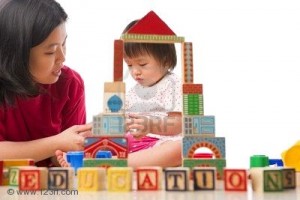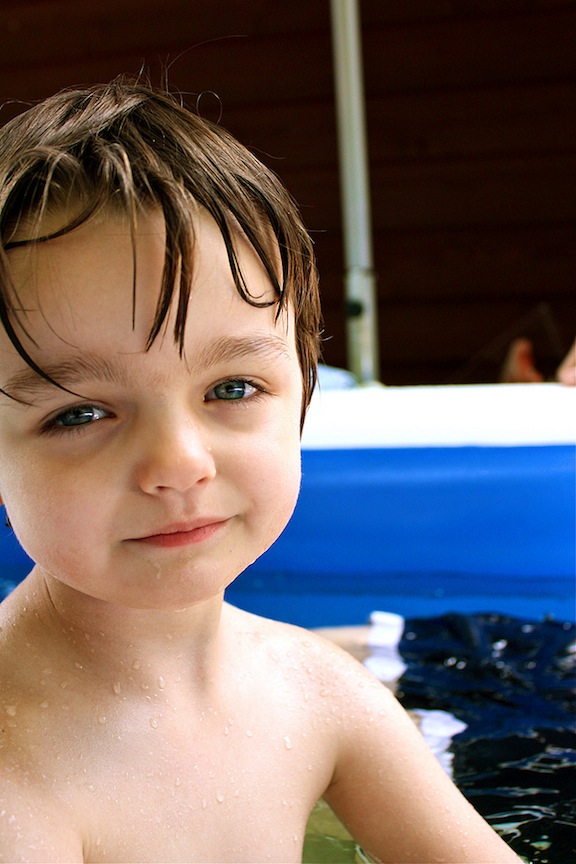This morning we made it all the way to the car with everything we needed for the day but for some reason when I suggested that my daughter hand me her lunch box so that she could climb into the car, she freaked. After some tears and some pushing me away and something garbled that I couldn’t quite understand, I did get her to agree to let me lift her into the car seat (which she usually HATES) so that she could hold on to her lunch box the entire time. She cried for a while in the car on the way to school. It wasn’t a complete meltdown, but it reminded me how confusing it is when kids get upset and we don’t know why.
Taking a Tantrum as a Compliment?
OK, I know it sounds strange, but when my daughter has a meltdown I really do take it as a compliment. Her tears and upset are so rare, partly because she’s just an easy-going person and partly because she trusts all her caretakers to listen to her and work to help her meet her needs. But there are times when she’s just too tired, or too hungry to stave off the tears and then she cries, throws herself down, throws whatever is within her reach, and pushes large objects around.
After we returned from a recent trip to visit my family, Julia was just a bit unglued and prone to crying and tantrums for a couple of days while she readjusted to being home. At first I was annoyed. I kept thinking, “Why is she acting like this? Why can’t she just listen? What can I do to get her to stop?” But every time I approached her with that attitude, the tantrums just increased in severity.
Playing with power
Well, it has happened. My sweet baby is already becoming a willful toddler. The past week or so has been filled with frustrating moments for her and for anyone near her. She has begun to whine. She is clinging to us like she thinks we’ll disappear if we’re out of her sight. And of course, she’s also starting to walk.
Learning to walk and talk are HUGE developmental milestones for a baby and with the new development comes an equally big emotional response. Tears and frustration abound as we humans learn new skills and reach new levels of development. And it’s not just babies who experience the emotional ride of learning new skills. Children and adults of all ages have the same big feelings. When we reach a goal, there’s often a big emotional high and an accompanying let down.
It’s OK to cry
“Dagny III” by Christee Cook
Have you ever noticed that when a child cries, often the first things out of our mouths are things like, “You’re OK” (minimizing their experience) or “Oh no! Don’t cry!” (asking them to deny their experience) or even, “What’s wrong?!” (asking them to think about and describe the upsetting event).
None of these acknowledge the child’s feelings or provide an open, loving environment in which a child can fully feel and express his emotions. I know, it’s an unconscious reaction we have all had at one time or another, but this week it’s time to shine the light of awareness on the way we speak to an upset child.
What we can learn from Chinese mothers
 Have you heard about the new book out that purports that Chinese mothers are better than western mothers? I haven’t read the book, but I did read an article about it and I was horrified to say the least. In the article I read there was a story of the author berating, cajoling, threatening, and punishing her child in order to get her to learn a piano piece. The child did in fact master the piece, so the author says that her parenting was effective. I disagree. I think it’s wonderful that her child overcame a challenge and learned a difficult piano piece, but I disagree with HOW the mother went about the lesson. I don’t think it’s ever OK to mock your child or call him names, even if your intent is to motivate.
Have you heard about the new book out that purports that Chinese mothers are better than western mothers? I haven’t read the book, but I did read an article about it and I was horrified to say the least. In the article I read there was a story of the author berating, cajoling, threatening, and punishing her child in order to get her to learn a piano piece. The child did in fact master the piece, so the author says that her parenting was effective. I disagree. I think it’s wonderful that her child overcame a challenge and learned a difficult piano piece, but I disagree with HOW the mother went about the lesson. I don’t think it’s ever OK to mock your child or call him names, even if your intent is to motivate.




